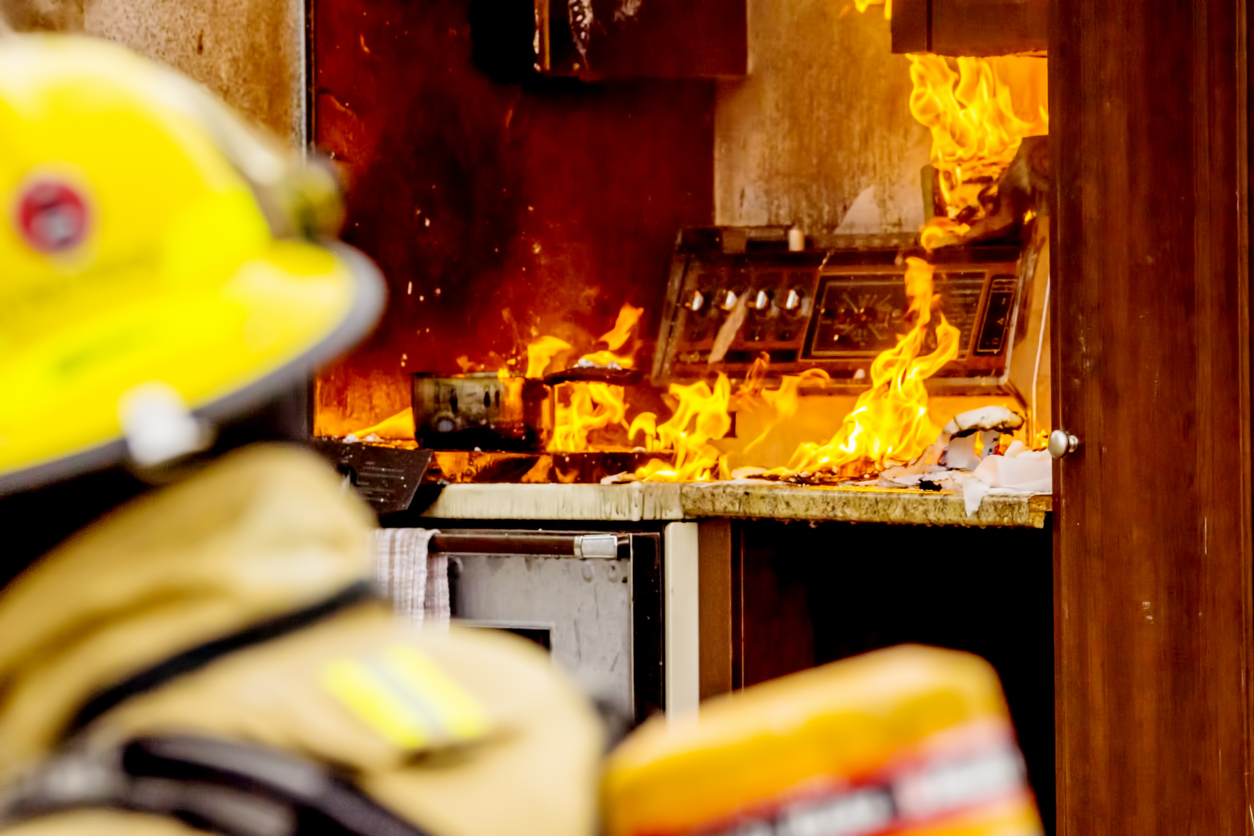
Most house fires are caused by cooking-related activities
Click this link to return to The W Disclosure newsletter.
Winter holidays are a jolly time full of magic, happiness, and goodwill towards all. They are festive times that bring different households together under one roof for delicious feasts and family fellowship. However, holiday celebrations and winter festivities are also when residential fires are at their highest.
Each year, on Thanksgiving Day, there are around 1,700 cooking-related fires. In 2015, the National Fire Protection Association reported 52-72% more cooking fires on Christmas Eve and Christmas Day than they had in previous days. Plus, according to the Consumer Product Safety Commission, house fires are much more common in the winter than any other time of year, and most of these fires are heating, electrical, and cooking-related.
Because of the added dangers of the holiday season, you must exercise additional caution to protect your family and yourself. Here are some of the most important steps you can take to help prevent an accidental house fire.
Cooking
Cooking fires are the most common cause of house fires, including during the winter season. Things like turkey can take hours to cook, so it’s not uncommon for people to leave them unattended while mingling with family, which could, unfortunately, result in a fire. These are some of the most critical holiday cooking safety tips that could prevent a tragedy.
- Clean your cooktop and oven regularly. Old bits of food and grease can heat up, causing smoke and fire.
- Keep plastics, towels, and other flammable objects off of the stovetop. It’s convenient to set down a turner or a kitchen towel for just a moment to grab something else, but doing so can quickly start a fire when the cooktop is hot.
- Keep pets and children away from the stove. Large dogs and children can get burnt if they touch a hot stove eye. They could also be injured if a boiling pot slips out of your grip and pours the contents onto them.
- Never leave a stove unattended while in use. When things take a long time to cook, it can be tempting to leave the room to watch TV for a bit, but doing so could result in your entire kitchen becoming engulfed in flames. Instead, consider bringing a chair into the kitchen to sit and read a book.
When using a turkey fryer, always follow the manufacturer’s directions. Never use it indoors or on your porch. Over the past twenty years, the Consumer Product Safety Commission reported 220 fire and burn incidents from turkey fryers alone. These incidents resulted in eighty-one injuries and over 9.7 million dollars in property damages.
Electrical and Heating
Heating and electrical fires are also more common during the holidays and in winter. These are caused mainly by space heaters, Christmas trees, and holiday candles.
- Use the appropriate lights indoors and outdoors. Indoor lights are not safe for outdoor use and shouldn’t be used as such. Indoor lights cannot withstand outdoor elements like freezing, snow, and rain.
- If using a live Christmas tree, always make sure it has plenty of water. Live trees dry out quickly as they die, making them even more flammable than most artificial trees.
- Make sure your artificial tree is labeled fire-resistant. Ones that are not could catch fire and aren’t safe to leave unattended while plugged in.
- Do not use string lights that have exposed wires, damaged plugs, or seem to be working improperly. Exposed wires produce enough electrical charge to electrocute you or someone else.
Space heaters are another common cause of home fires. Do not place space heaters close to walls, furniture, or curtains. Keep them at least three feet away from items, and never lay linen across them to dry. Also, you should always make sure the heater is off before going to sleep or leaving home.
Other Tips
While house fires are more common during the cold season, they can occur at any time. Be sure to remember these tips that can help keep you safe year-round.
- Have a fire extinguisher in your home. A fire extinguisher is the safest way to put out small house fires before they spread and grow. You should never try to put out a grease fire with water. Doing so could cause the grease to splash, spreading the fire or scalding you. Instead, you should cover the fire with a metal lid, douse it with baking soda, or use a fire extinguisher. If a fire begins in the oven, turn it off and keep the door closed. By keeping the door closed, you deprive the fire of oxygen so that it smothers, putting out the fire.
- Make sure there is a smoke detector in every room. A smoke detector can mean the difference between life and death. Having one in every room means everyone can hear it and safely exit the house quickly if they need to.
- If your home uses natural gas, make sure you have a carbon monoxide detector. Not only can natural gas leaks cause house fires, but they can also poison you and your family with carbon monoxide.
- Keep candles away from flammable objects and never leave them unattended. Candles can keep your home smelling lovely, but they are also a common cause of residential fires. Never leave them burning if you aren’t in the room, and always keep wicks trimmed appropriately.
Sadly, residential fires are more common during the holiday season than at any other time of the year. However, you can often help prevent them by following these safety tips. That way, you can spend more time with family and less time dealing with a disaster.
Click the link here to return to The W Disclosure Newsletter.


 Facebook
Facebook
 X
X
 Pinterest
Pinterest
 Copy Link
Copy Link


